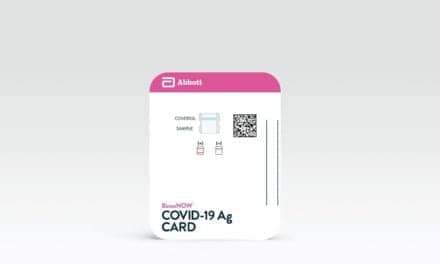NanoDx, Inc., a privately held medical device company developing point-of-care diagnostic solutions, has entered into a licensing agreement with IBM Research for use of its metal-oxide semi-conductive (CMOS) compatible nanoscale sensors to enhance and expand accurate, rapid testing for several indications, including COVID-19, traumatic brain injury (TBI), sepsis, and stroke. NanoDx is pursuing an emergency use authorization from the U.S. FDA for rapid, two-minute, point-of-care COVID-19 testing.
“The field of diagnostics has changed rapidly during the past year with the emergence of COVID-19,” says Sharad Joshi, president and chief executive officer of NanoDx. “This global pandemic has further highlighted the need for a convenient, fast, and accurate diagnostic [test], so proper treatments can be delivered to patients as quickly as possible with the goal of shortening recovery times. As we move forward, our access to IBM’s technology in the in vitro diagnostics and biosensor fields will enable us to pursue developing a high throughput diagnostics platform at a significantly lower cost.”
NanoDx is commercializing a real-time, point-of-care diagnostics platform capable of detecting and quantifying biomarkers (analytes) from a small fluid specimen in less than two minutes. The company has built an extensive intellectual property portfolio around its nanosensor design and manufacturing processes that encompasses the entire field of in vitro diagnostics.
“Our work with NanoDx is another example of IBM’s collaborative approach to what we call ‘hard tech’: solving the deep technical problems that affect our everyday lives,” says Mukesh Khare, vice president, Hybrid Cloud Research at IBM Research. “Notably, this CMOS-compatible device can be manufactured in an existing foundry, providing easily scalable and cost-effective hardware. The integration of this technology design with NanoDx’s highly-advanced nanosensor platform can help accelerate the ability to bring an extensive array of diagnostic solutions to market.”





